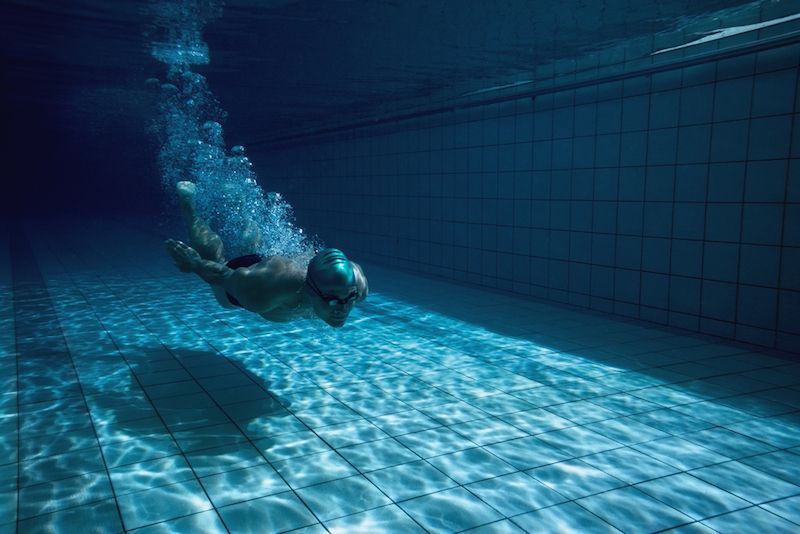Underwater Breath-Holding Games Can Be Deadly

Signs at public pools that discourage breath-holding competitions could save lives, according to a new report.
The report describes a number of cases in which swimmers drowned, or came very close to drowning, because they intentionally held their breath or participated in breath-holding games. In most cases, these people were advanced or expert swimmers who were otherwise healthy.
One incident, in 2011, involved two men in their early 20s in New York City who were practicing for an advanced military fitness test, and were performing breath-control exercises underwater. But a few minutes later, both were found unconscious underwater, and later died at a hospital.
In another case, a teenage boy took part in an underwater breath-holding contest that left him unconscious. His friends alerted the lifeguards, who were able to resuscitate him, according to the report, from researchers at the New York City Department of Health and Mental Hygiene. [7 Common Summer Health Concerns]
These cases show that when people intentionally hold their breath, they increase their risk of drowning, the researchers said.
Warning signs at pools and swimmer education to discourage what the researchers are calling "dangerous underwater breath-holding behaviors", or "DUBBs," could effectively reduce incidents of drowning, the researchers said.
In fact, since 2014, New York City has required that pools post signs warning swimmers that holding their breath for a long time can be deadly. This new rule was prompted by the case of the two young men who died while performing breath-control exercises. Other cities should consider similar rules, the researchers said.
Sign up for the Live Science daily newsletter now
Get the world’s most fascinating discoveries delivered straight to your inbox.
Overall, the researchers identified 16 cases in New York state between 1988 and 2011 of people who died or nearly died after intentionally holding their breath underwater. In many cases, the swimmers were taking part in breath-holding competitions, but in some cases, they were swimming laps as part of training.
The researchers noted that there may be even more cases of drowning caused by DUBBS, because behaviors that lead to drowning often go unreported.
The report will be published Friday (May 22) in the Centers for Disease Control and Prevention's Morbidity and Mortality Weekly Report.
Follow Rachael Rettner @RachaelRettner. Follow Live Science @livescience, Facebook & Google+. Original article on Live Science.

Rachael is a Live Science contributor, and was a former channel editor and senior writer for Live Science between 2010 and 2022. She has a master's degree in journalism from New York University's Science, Health and Environmental Reporting Program. She also holds a B.S. in molecular biology and an M.S. in biology from the University of California, San Diego. Her work has appeared in Scienceline, The Washington Post and Scientific American.









